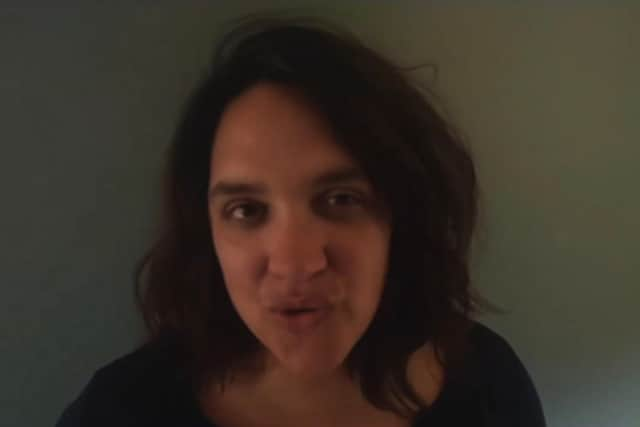The Scotsman Sessions #143: Hannah Lavery
Hannah Lavery’s dramatic monologue The Drift - staged by the National Theatre of Scotland in 2019, on a brief Scottish tour - is an iconic piece of 21st century Scottish poetry about the experience of growing up black, or mixed-race, in a Scotland that often prides itself on its inclusive attitude to citizenship, but is still profoundly unused to dealing with real-life racial and cultural diversity.
Born in Edinburgh in the 1970s, to an English mother and mixed-race father – who had himself been born in Edinburgh in the 1940s, and was a passionate Hibs supporter – Lavery carried a heavy burden of rage and disappointment from the moment when her father left the family home, when she was only two. And if she felt anger against her absent father, she was also increasingly appalled by the daily racism encountered by her father, by herself, and eventually by her own children; by the pervasive assumption that she – and they – somehow “don’t belong,” and by a rage that comes from the very depth of Scotland’s history, and our complicity in the long narrative of slavery, colonialism and racial exploitation.
Advertisement
Hide AdFor Lavery, the act of shaping her life into poetry has therefore become a survival skill, allowing her both to work her way towards a deeper understanding of her father – who died in Leeds in 2014 – and to set down a marker as a Scottish black woman and writer who loves this country, but cannot subscribe to any facile narrative about Scottish moral superiority. In this extract from The Drift, Lavery speaks both of her ambivalent relationship with Scotland, and of the father who, wherever he was, always wanted her to be his “Edinburgh girl,” growing up in the shadow of Easter Road; and reflects briefly on the experience of her own young children, learning how to cope with the racist attitudes they too still encounter.


Over the last decade, Lavery has emerged as a major figure on the Scottish poetry scene, and in spoken word performance and theatre. Her poetry and short fiction has been published by Gutter magazine and Postbox Press, among others. She is currently working on a play about climate change called Three Pints On A Sunday; and she is the founder and director of CoastWord, a poetry and music festival in Dunbar, where she now lives.
This year, she has taken on the fierce challenge of creating a play for the Lyceum Theatre, the Edinburgh International Festival and the National Theatre of Scotland about the death of Sheku Bayoh, a young man of Sierra Leonian heritage who died in Kirkcaldy in 2015, following his forcible arrest by nine policemen, none of whom have been prosecuted in relation to his death. Lament For Sheku Bayoh received an acclaimed rehearsed reading during last year’s Edinburgh Festival; and this month, Lavery’s fully-staged version, with an all-female cast of three, is available for audiences to watch online, from the stage of the Lyceum Theatre, on 20 and 21 November. Whatever stories she chooses to tell as her career evolves, though, The Drift is the work in which Lavery first laid bare the life experiences, and the personal pain, that inspire and energise her work; and in this extract, filmed straight to camera at her East Lothian home, she relives that life story with an honesty that sears the lens, and creates poetry so vivid it become impossible to forget.
Lament For Sheku Bayoh is available to view on 20-21 November, at https://lyceum.org.uk/whats-on/production/lament-for-sheku-bayoh
A message from the Editor:
Thank you for reading this story on our website. While I have your attention, I also have an important request to make of you.
The dramatic events of 2020 are having a major impact on many of our advertisers - and consequently the revenue we receive. We are now more reliant than ever on you taking out a digital subscription to support our journalism.
To subscribe to scotsman.com and enjoy unlimited access to Scottish news and information online and on our app, visit https://www.scotsman.com/subscriptions
Joy Yates, Editorial Director